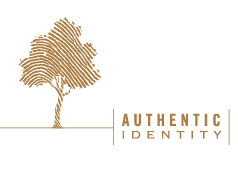By Tony Tiernan & Sam Keller
Inertia is an amazingly powerful force, and reasoned argument often proves inadequate to overcome it. Think about how hard it is to get people to move their bank accounts even when it’s clearly in their financial interests. Or why nearly three-quarters of all corporate change initiatives fail, no matter how well argued, or how compelling the business case.
Human behavior is hard to change, and this is one of the biggest obstacles facing businesses selling sustainable products and services. Brands are uniquely well placed to help, because of they can speak two languages – reason and story.
The rational case for sustainability is hard to refute. Humanity is currently burning through more resources each year than the planet is capable of replacing. It’s easy to understand that the long-term survival of the human population relies on a stable natural environment. Yet the gap between what consumers understand (I agree this is what I ought to do) and how they act (but I don’t want to) remains huge.
Rational or logical argumentation produces understanding (What I ought to do), but stories produce emotional identification (What I want to do). We act (make change) only in the latter state.
It’s also clear that those brands that create meaning for their users (by identifying credibly with a worthwhile purpose that improves our collective wellbeing) fare far better economically than other brands (see our last post). So how do marketers grow sales of their products or services, while encouraging their customers to make more sustainable choices?
Ultimately brands are about meaning, and stories are the fundamental building blocks of meaning.
So brands that tell powerful stories produce tighter bonds with their users, and are more likely to bring about beneficial changes in consumer behavior.
Take the example of OPower, a business that enables utility companies to show their customers, on their utility bills, how their energy use compares to that of their neighbors. OPower is telling consumers an archetypal story about community and belonging, two powerful and fundamental human needs.
By appealing to our need to belong, and showing electricity consumers how their behavior compares with the rest of the “tribe”, OPower has motivated remarkable reductions in household energy use. You can hear more in this TED Talk by Alex Laskey, President and Founder of OPower.
Most of us have seen those cards in hotel rooms that ask you to conserve water and energy by not changing your towels every day. A few years back, researchers tested two different messages on the cards in a 190-room, midprice chain hotel. The first card appealed to guests to "Help Save the Environment" and urged visitors to "show your respect for nature" by reusing towels. The second read, "Join Your Fellow Guests in Helping to Save the Environment" and noted that 75% of guests participated in the towel-reuse program. The guests who read the second card were 25% more likely to reuse towels.
And a follow-up study found that making the wording on the card specific to the guest's room (as in: nearly 75% of guests who stayed here in Room 435 reused their towels) yielded even better compliance.
Brands that associate themselves with sustainability can exert positive peer pressure on their customers and help them change. A powerful brand story, one that appeals to a fundamental human need, is a tool for building more than affiliation and loyalty. It’s a tool for making change.


